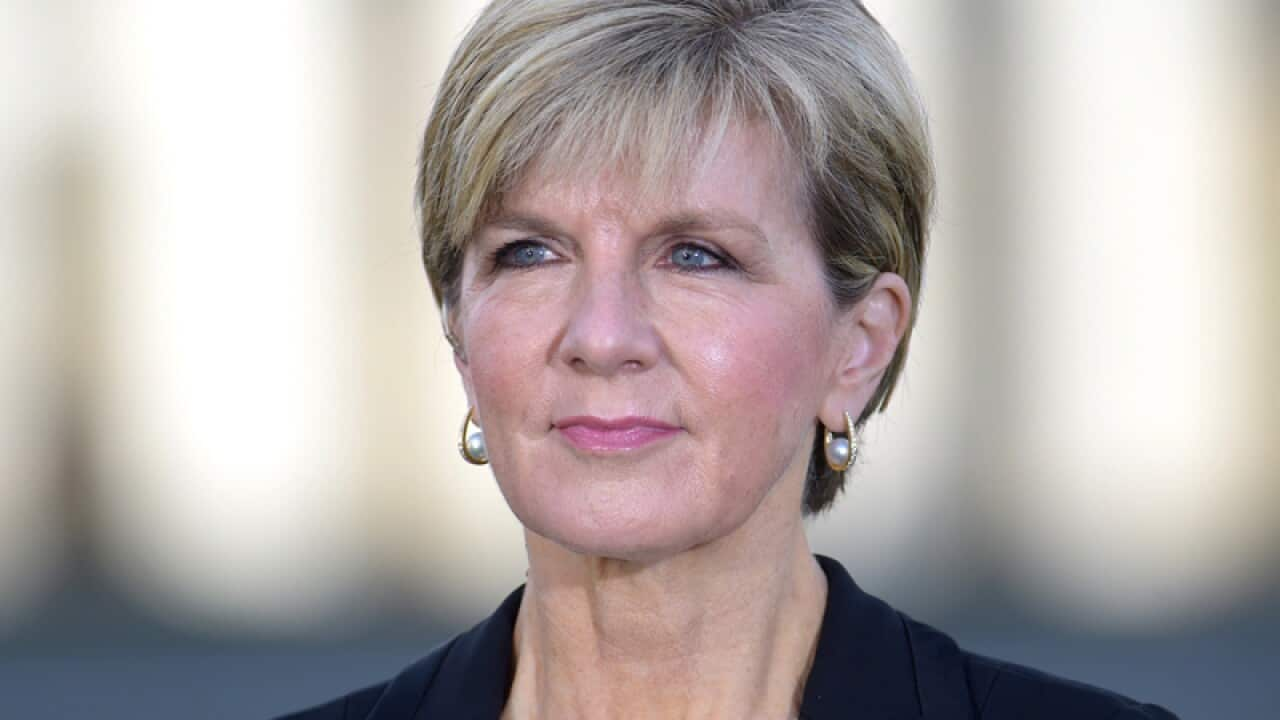Human rights groups say Australia needs to lift its game as it bids for a seat on a key United Nations body.
Foreign Minister Julie Bishop, who is in New York for a series of conferences, is scheduled to meet with UN Secretary-General Ban Ki-moon and UN High Commissioner for Human Rights Zeid Raad Al Hussein early Friday morning (AEST).
Australia is seeking election to the UN Human Rights Council for the 2018-2020 term.
The council of 47 UN member states is responsible for promoting human rights around the globe, addressing situations of human rights violations and making recommendations on them.
The meetings come as a new report says Australia needs to improve its own record if it is to exercise true leadership.
"Australia's approach too often has been passive and, of greater concern, Australia has at times acted in an inconsistent and unprincipled manner," says the report, Australia at the Human Rights Council.
The government had failed to properly respond to concerns raised by the UN High Commissioner for Refugees about the treatment of asylum seekers and indigenous people still faced significant discrimination, the report said.
The report, by Human Rights Watch and the Human Rights Law Centre, noted three areas for improvement.
Australia should take stronger leadership on country-specific human rights violations, particularly in Sri Lanka, Burma, and Cambodia.
It should stop attacking the credibility and independence of Australia's human rights commissioner Gillian Triggs.
And it should work more closely with independent non-government organisations.
Professor Triggs said earlier in September it had been a "year of living dangerously as we have drawn attention to the erosion of our human rights and the diminution of the checks and balances that preserve our democracy".
She pointed to proposed citizenship laws, mandatory sentencing, "paramilitary" operations involving Australian Border Force and police checking visas and attacks on freedom of speech as key concerns.
The foreign affairs department website says Australia, a foundation signatory to the Universal Declaration of Human Rights 60 years ago, is a "principled advocate of human rights for all".
Share

